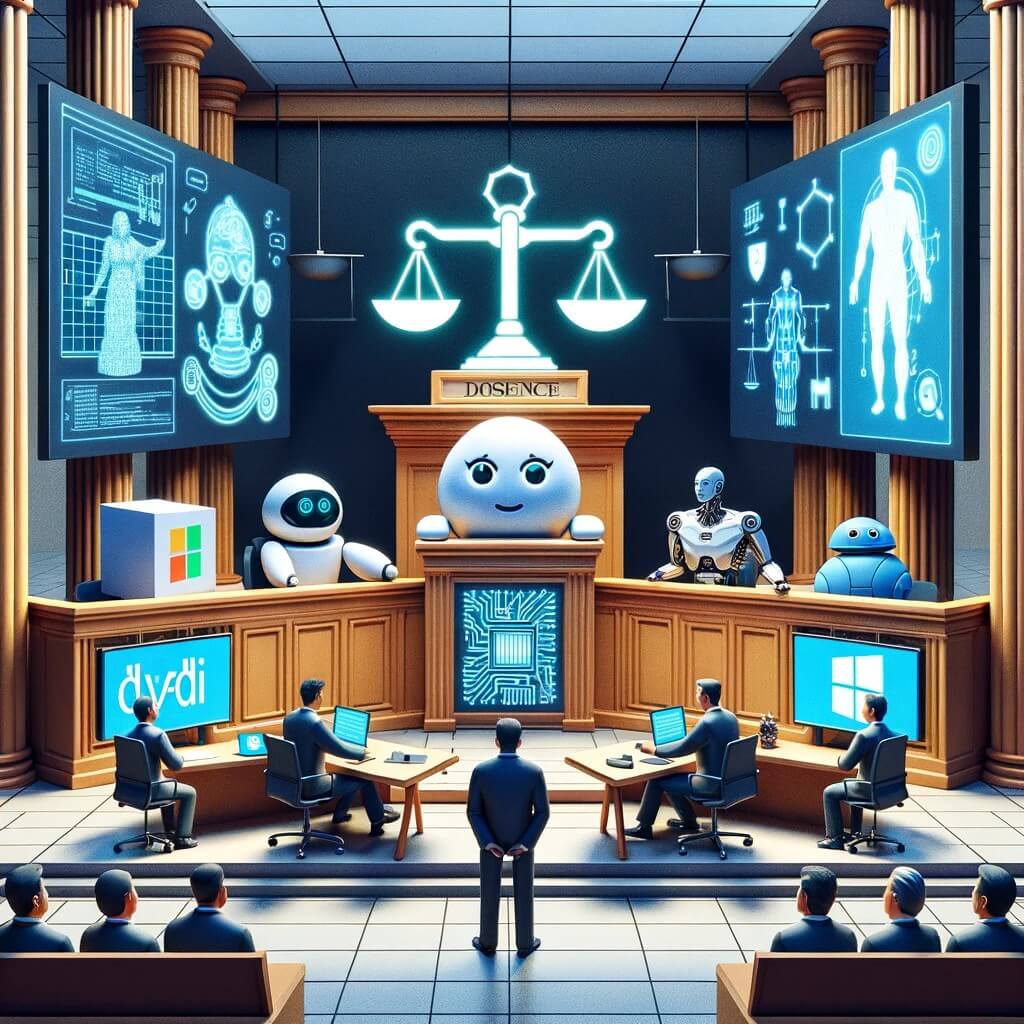In a legal clash that could redefine the boundaries of artificial intelligence and intellectual property, The New York Times has initiated a landmark lawsuit against tech giants Microsoft and OpenAI. The crux of the matter lies in the alleged unauthorized utilization of substantial amounts of The New York Times’ content for the training of AI models. This legal battle not only highlights the intricate web of copyright issues but also brings to the forefront the broader implications of AI in business, particularly concerning fair competition and commercial usage.
The Lawsuit and its commercial implications
The lawsuit unfolds against the backdrop of a rapidly evolving AI landscape, where the training of large language models is becoming a cornerstone of technological advancements. The New York Times contends that its content, ranging from historical pieces to contemporary articles, has been employed without proper compensation for training AI. In a candid yet assertive article, The Times clarifies that its legal pursuit is not driven by a quest for an exact monetary sum but rather a principled stand to safeguard its intellectual property.
Underneath the surface of this legal battle lies a complex web of commercial implications. The same AI technology accused of utilizing The New York Times’ content is now in direct competition with the newspaper’s product review subsidiary, Wirecutter. The allegation of “almost verbatim” usage of content by AI raises questions about fair competition, ethical considerations, and the need for transparent agreements in the realm of AI training. The absence of a clear resolution mechanism for copyright issues before embarking on major AI projects is brought to the forefront by The New York Times.
The fundamental technical and commercial points
As the legal drama unfolds, it becomes evident that the clash between The New York Times and the AI giants goes beyond a mere legal dispute. The lawsuit sheds light on fundamental technical and commercial aspects that resonate across the AI landscape. The ongoing management of copyright in the realm of large language model training emerges as a crucial necessity, considering the perpetual evolution of technologies and the dynamic nature of language models.
The lawsuit prompts critical questions about the ownership of AI-generated content, especially when it comes to potential inaccuracies or misleading information. The responsibility for losses or injuries resulting from AI-generated content becomes a gray area that demands clarification. Also, the commercial use of sourced materials for AI training raises concerns about the value of copyright, especially if an AI were to produce content with significant commercial impact, such as an NYT bestseller.
New York Times vs Microsoft, OpenAI – Shaping AI ethics
As The New York Times takes a stand against Microsoft and OpenAI, the implications of this lawsuit reverberate across the realms of AI, copyright, and business ethics. The clash between these titans forces us to confront the intricate challenges posed by the intersection of AI and intellectual property. The future of AI and its coexistence with traditional media hinges on the resolution of this legal battle. Who holds the key to the ethical and commercial implications of AI training, and how will this precedent shape the landscape for future interactions between technology and journalism? Only time will unveil the answers, but the echoes of this lawsuit are sure to resonate for years to come.




